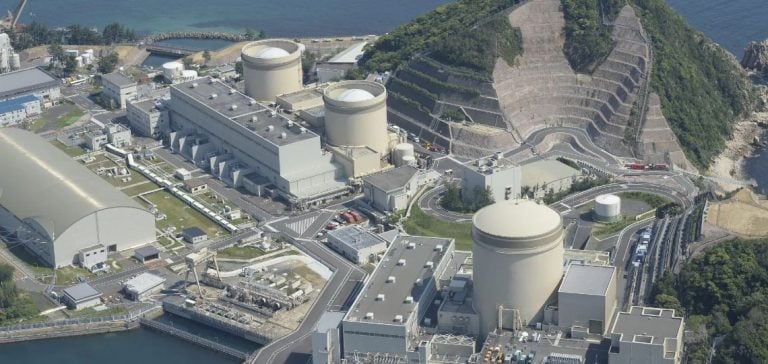The Sea of Japan glistens peacefully near the world’s largest nuclear power plant: Kashiwazaki-Kariwa (KK). As the country seeks to limit coal usage, one of KK’s reactors has recently been brought back into service, accompanied by new safety measures, including a reinforced tsunami wall.
Return to Nuclear Energy
After the Fukushima disaster in 2011, Japan had abandoned civil nuclear power, leading to a significant increase in fossil fuel imports. Today, Tokyo is accelerating its return to nuclear energy, which currently accounts for less than 10% of its electricity production. Masaki Daito, deputy director of KK, assures that the new safety standards are the strictest in the world.
Enhanced Safety Measures
At KK, several systems have been installed to prevent a recurrence of the Fukushima accident. In addition to the 15-meter anti-tsunami wall, the plant has generator trucks on elevated grounds, evacuation panels, and filtered ventilation systems. These improvements aim to maintain electricity supply and limit the impact of a potential disaster.
Economic and Environmental Impact
Before 2011, nuclear power plants provided a third of Japan’s electricity. The closure of reactors forced the country to increase imports of gas, coal, and oil, with a daily cost of 510 million dollars last year. The think tank E3G ranks Japan last among G7 countries in terms of decarbonizing electrical systems.
Energy Transition Goals
Japan aims to increase the share of renewable energies, including hydroelectric power, from 20% to 36-38% by 2030. At the same time, it plans to reduce the share of fossil fuels to 41%. Hanna Hakko, an E3G expert, estimates that the country could achieve 70-80% of its electricity from renewables by 2035, thereby gradually eliminating coal.
Challenges and Perspectives
Despite these efforts, nuclear energy remains essential to cover the remaining energy needs, alongside gas. Tokyo expects that nuclear will generate 20-22% of electricity by 2030. Prime Minister Shigeru Ishiba has affirmed the necessity of using nuclear power to ensure energy security, despite persistent public concerns.
Risks and Public Perceptions
Concerns about nuclear energy remain strong. Tokyo has recently issued a “mega-earthquake notice” and assesses a 70% risk of a major quake in the next thirty years. In Fukushima, securing the site and the fate of the radioactive fuel remain uncertain, fueling public mistrust of nuclear power.





















